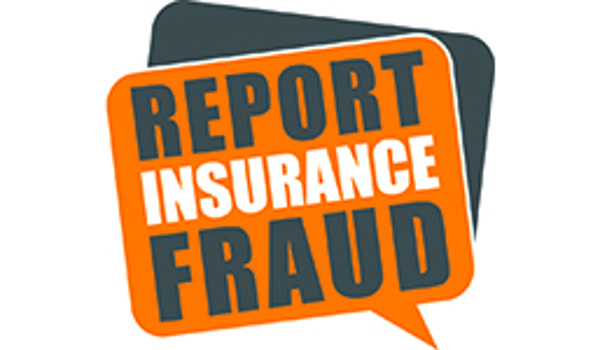The UK's top 30 'Crash for Cash' scam hotspots revealed

The Insurance Fraud Bureau (IFB) has today released new figures that confirm the UK’s top 30 worst-affected postal districts for ‘Crash for Cash’ scams.
‘Crash for Cash’ is a common insurance scam which sees fraudsters invent or deliberately cause road traffic collisions, often involving innocent people, to try and get compensation.
The hotspots analysis confirms Birmingham remains the most prevalent area in the UK for the dangerous scam, followed by postcodes in Bradford, Manchester, London and Luton.
IFB analysis of 2.7 million motor insurance claims made across the UK in between 1/10/2019 to 31/12/2020 has identified over 170,000 claims which could be linked to suspected ‘Crash for Cash’ networks.
‘Crash for Cash’ scams can range from paper-based fabrications, or vehicles being damaged behind closed doors, through to the most dangerous where collisions are being caused by fraudsters with innocent road users.
IFB investigations have found single gangs can be behind thousands of orchestrated collisions in some areas, with the combined value of their fraudulent claims running into the millions.
In the top hotspot area of Birmingham, the IFB recently worked with City of London Police’s Insurance Fraud Enforcement Department (IFED) to convict a serial ‘Crash for Cash’ fraudster who had spent over two years luring innocent people into car crashes.
Ben Fletcher, Director at the IFB, said:
“Crash for Cash’ fraudsters bring devastation to countless victims and increase motor insurance costs for us all. The IFB’s hotspots analysis is a stark reminder that although great strides have been taken in tackling the problem, these car crash scams are all too common."
“As traffic levels return to normal following the national lockdown, ‘Crash for Cash’ fraudsters may look to make up for lost time. It is hoped that by shining a spotlight on the issue we will encourage road users to be alert and report any suspicious activity to the IFB’s CheatLine on 0800 422 0421.”
It is hoped that the announcement of the UK’s top ‘Crash for Cash’ hotspots will encourage communities to be vigilant as more drivers start to take to the roads.
Freddie Lovejoy, an LV= General Insurance customer, fell victim to a ‘Crash for Cash’ after his Land Rover was induced into a collision on the A1. A court case was successfully fought after the fraudsters attempted to claim for compensation. He said:
“You never expect a crime like ‘Crash for Cash’ to happen until it does, and I would strongly recommend drivers read up about it. There can be physical and mental impacts when involved in a car incident, and to think criminals do it on purpose is scary."
“At the time I was using a dashcam which provided crucial evidence for the case, so that would be my top tip to anyone. I was lucky to get support and justice, but others might not be so fortunate, so creating more awareness for the public is important.”

James Dalton, Director of General Insurance Policy at the Association of British Insurers, said:
“These criminal gangs are often highly organised and put lives at risk. The amounts that they fraudulently claim can be huge, and can impact on the motor premiums paid by honest motorists. With more vehicles on the roads as we emerge from the pandemic restrictions, so the potential targets for these criminals increases. This is why it is so important for all motorists to be on their guard – if you suspect an incident is suspicious do not put yourself at risk, but report your suspicions to the IFB’s confidential CheatLine.”
Detective Chief Inspector Edelle Michaels, Head of the City of London Police’s Insurance Fraud Enforcement Department (IFED), said:
“‘Crash for Cash’ fraud is damaging to the public in many ways. Most critical is the threat it poses to the safety of road users, as criminals target innocent drivers by deliberately crashing into them. These induced collisions could have potentially grave consequences and the traumatic experience could have a lasting effect on the victim. We have seen time and time again that ‘Crash for Cash’ fraudsters do not care about the safety of their victims, with a trio even targeting a pregnant woman in 2019.”
“The staging, or fabrication of collisions is often seen as a victimless crime. In reality, this fraud costs everyone by increasing the price of insurance premiums, meaning that honest policy holders are faced with higher costs. IFED is committed to combatting ‘Crash for Cash’ criminals, whether they are opportunistic fraudsters or part of a wider organised crime group. We will continue to work collaboratively with the industry to stop this type of fraud and to educate the public on how best to protect themselves.”
Clare Lunn, Director of Financial Crime at LV= General Insurance, commented:
“’Crash for Cash’ creates serious risk for the public and their safety, and our top priority is to protect our customers and consumers from fraud. As we come out of lockdown and more traffic returns to our roads, drivers need to be ever more vigilant."
“Threats like ‘Crash for Cash’ continue to evolve, and it’s vital motorists understand how to spot the signs and report it. As an major insurer, working with the industry including the IFB means we can collaboratively identify and convict criminals who attempt this type of activity, to keep our roads as safe as possible.”
Avoiding ‘Crash for Cash’
Induced car collisions are often caused by fraudsters who slam on their brake on busy junctions and roundabouts in the hope that the driver behind won’t stop in time. Some fraudsters also do this with an accomplice that drives erratically in front of them, so they can divert the victim’s suspicions by blaming the driver in front.
In addition, there have been rising reports of innocent drivers being crashed into by fraudsters after being encouraged to pull out of side roads, or when creeping forward for a better view.
Keep a good distance
Always keep a good distance from the vehicle in front. According to the DVSA (Driver and Vehicle Standards Agency) the time required to safely stop is:
- 2 seconds in dry conditions.
- 4 seconds in wet conditions.
- 20 seconds in icy or snowy conditions.
Stay alert
- Drive safe and stick to the highway code.
- Look ahead to spot any potential hazards including unusual driving behaviour.
- Focus on vehicles and not just their lights, as fraudsters often disable brake lights.
- Be cautious when pulling out of a side road, especially if encouraged by another driver.
- If other drivers or their passengers are behaving suspiciously, or the condition of their vehicle is poor (such as rear dents), stay calm and keep back.
Know the signs of a ‘Crash for Cash’
- The driver or their passengers appear to be unphased after the collision.
- The driver or their passengers appear to exaggerate injuries.
- Pre-written insurance information is handed over.
Reporting ‘Crash for Cash’
Remember to note as much information as possible about the driver, any passengers and circumstances of the collision. This can include written information, pictures, dashcam footage and noting CCTV in the area.
In an emergency, please contact the police on 999 or 101 if the matter is not an emergency but requires police attendance.
Evidence of a ‘Crash for Cash’ scam can be reported to the IFB’s confidential and anonymous CheatLine (powered by CrimeStoppers) on 0800 422 0421 or at www.insurancefraudbureau.org/cheatline
In addition, Action Fraud - the National Fraud & Cyber Crime Reporting Centre, can accept reports of 'Crash for Cash' scams.


